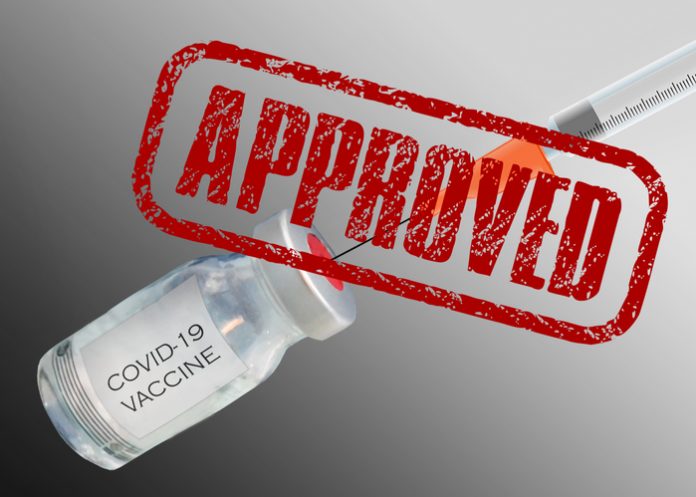A group of drug safety advisors and academics is speaking out against a decision by the Food and Drug Administration (FDA) to amend the labeling for the Pfizer and Moderna mRNA inoculations for COVID-19.
The labeling for the shots is “obsolete” and fails to warn the public about harms, an op-ed in The Hill stated on June 9.
“Product labeling should be informative and accurate, not promotional. The law requires it, and following the law shouldn’t be optional,” wrote Peter Doshi, Ph.D., an associate professor, and Linda Wastila, Ph.D., a department chair, both at the University of Maryland School of Pharmacy, and Kim Witczak, a drug safety advocate.
On January 31, the op-ed authors and the Coalition Advocating for Adequately Labeled Medicines (CAALM) submitted an FDA Citizen Petition (petition) requesting updates to the labeling on the mRNA COVID shots.
The FDA denied virtually all petition requests in its response on April 18. That same day, the FDA announcedModerna and Pfizer-BioNTech’s COVID-19 Emergency Use Authorizations (EUAs) for bivalent mRNA vaccines were amended to “simplify” vaccine schedules and the companies’ monovalent COVID vaccines wouldn’t be allowed in the United States.
The agency is expected to authorize the reformulated monovalent COVID-19 shots this fall.
‘Appropriate Labeling Is Important’
Labeling includes package inserts, EUA fact sheets for vaccination providers, patient-oriented materials such as EUA fact sheets for recipients and caregivers, and patient package inserts.
Wastila told HCN “appropriate labeling is important for many reasons, one being informed consent. Without truthful, accurate, current, and easily accessible information on safety and effectiveness, prescribers cannot appropriately counsel patients about risks and benefits, and individuals cannot make truly informed consent.”
Called for Caution
Among many requests, CAALM asked the FDA to update adverse-event labeling to include multisystem inflammatory syndrome in children, pulmonary embolism, sudden cardiac death, neuropathic and autonomic disorders, decreased sperm concentration, heavy menstrual bleeding, and detection of vaccine mRNA in breast milk.
Using peer-reviewed articles, post-marketing studies, and data from the government’s Vaccine Adverse Event Reporting System (VAERS), CAALM argued these items meet the regulatory standard of “some basis to believe there is a causal relationship between the drug and occurrence of the adverse event.”
Citing Pfizer study data, CAALM requested a clear statement that vaccine efficacy wanes two months after receiving dose two. CAALM also asked for clarification that certain studies were not designed to, nor did they, provide substantial evidence of immunization efficacy against COVID transmission or death.
Citing “inaccurate” statements by government officials, the petition states “there is a widespread (but inaccurate) notion that efficacy against infection and transmission [has] been established by substantial evidence, and that these vaccines contribute to herd immunity.”
FDA Rejected Requests
The FDA rejected all but one of the petitioners’ requests. Ignoring the “some basis to believe” regulatory standard, the FDA said a “causal relationship” wasn’t shown for the adverse events.
Contrary to ongoing collaborative efforts with foreign regulators, the FDA did not agree to certain adverse event labeling adopted elsewhere, including Europe.
Different Strokes for Different Pokes
The FDA is treating the COVID shots differently from other products, says Jane Orient, M.D., executive director of the Association of American Physicians and Surgeons.
“If a serious event occurs, the treatment is suspect until proven otherwise,” said Orient. “A few events can get a drug recalled without waiting for more people to die or for a very expensive study to be launched and reported. But the government treats COVID shots differently. They must be proved guilty beyond a reasonable doubt, and if not proved guilty, allowed to go free.
“The VAERS database is used by the FDA when it pleases, but disregarded for this product,” said Orient. “Why hasn’t a better system been developed, when its flaws have been known for decades?”
The FDA disregarded concerns about public confusion regarding COVID transmission and death, saying the petitioner used “selective statements” and did not include “countervailing statements.”
Although the agency agreed to update data regarding Pfizer’s randomized trials of bivalent boosters, it denied CAALM’s request to update Moderna’s data because it hadn’t yet evaluated it.
Orient says the response could reflect pressure from the pharmaceutical industry, political blowback, or an effort to save face.
Labels Have Consequences
“Had prescribers better understood the potential safety implications of the vaccines, as well as their waning effectiveness, perhaps they could better counsel patients who receive them, including not recommending them for infants, children, young and middle-aged adults, and pregnant women who are not at risk for severe COVID sequelae but who are very much at risk for adverse vaccine effects,” said Wastila.
“It’s becoming clear that COVID-19 vaccines may precipitate or accelerate serious health problems, but prescribers still counsel patients based on incomplete and obsolete labeling from the government and pharmaceutical industry,” said Wastila. “The lack of accurate, accessible, and current data needed to provide appropriate informed consent is a major reason for the erosion of trust in national and state public health agencies and has fueled vaccine hesitancy.”
Knock-On Effects
The FDA’s decision means upcoming vaccines are likely to have incomplete labeling, says Wastila.
“This is unfortunate because the pharmaceutical pipeline is crammed with new vaccines and other products in development using the vaccine’s mRNA platform,” said Wastila. “By ignoring safety concerns not balanced against effectiveness, [there will be] continued tremendous injuries to patients.”
Wastila says she is concerned reformulated vaccines will be modeled on virus variants that no longer exist.
That will create “massive safety concerns and ongoing failures to provide fully informed consent, particularly if there are government mandates for these novel technologies,” said Wastila.
Dvorah Richman, J.D., (dvorahrichman@gmail.com) writes from Fairfax, Virginia.





















